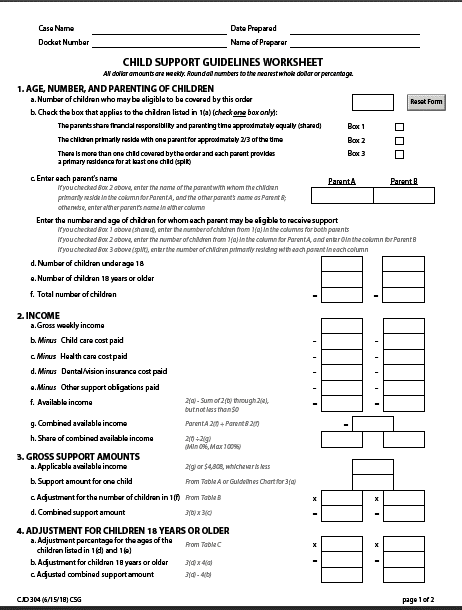Key Provisions of Massachusetts Child Support Laws
Massachusetts child support laws are designed to ensure that children receive the financial support they need from both parents. These laws aim to promote the well-being of children and provide a clear framework for determining how much support should be paid. Understanding these laws is essential for parents navigating custody and support agreements. In this post, we’ll explore the key provisions of child support in Massachusetts, including how amounts are determined, the purpose of support, and how orders can be modified or enforced.
Purpose of Child Support

The primary purpose of child support is to provide financial assistance for the upbringing of a child. This includes covering essential needs such as:
- Food: Ensuring that children have access to nutritious meals.
- Shelter: Providing a stable living environment.
- Clothing: Meeting basic clothing needs.
- Education: Supporting educational expenses like tuition and school supplies.
- Medical Care: Covering health insurance and medical expenses.
Child support not only helps in meeting a child’s everyday needs but also contributes to their emotional and social well-being by providing stability and security.
Determining Child Support Amounts
In Massachusetts, the amount of child support is determined using the Massachusetts Child Support Guidelines. These guidelines provide a formula that considers several factors, including:
- Parents’ incomes: The combined gross income of both parents plays a crucial role in determining support amounts.
- Number of children: The number of children needing support affects the overall obligation.
- Child’s needs: Special needs, healthcare requirements, and educational expenses may influence the final amount.
- Custody arrangement: The amount of time each parent spends with the child can impact financial responsibilities.
Using these factors, the guidelines provide a recommended support amount. However, judges have the discretion to adjust this amount based on individual circumstances. It’s also important for parents to review their situation regularly, as changes in income or needs can lead to necessary modifications in support.
Factors Influencing Child Support Decisions
Child support decisions in Massachusetts are not made lightly. Several important factors come into play when determining the amount and terms of support. Understanding these factors can help parents navigate the process and ensure a fair outcome. Here are some key considerations:
- Income of Both Parents: The total gross income from both parents is crucial. This includes wages, bonuses, rental income, and other sources.
- Child’s Needs: The specific needs of the child, such as healthcare, education, and special requirements, are taken into account.
- Parenting Time: The amount of time each parent spends with the child affects how much support is required. More time with one parent might lead to a lower support obligation.
- Living Expenses: The living expenses of both parents can influence the amount of support, especially if one parent has significantly higher costs.
- Other Children: If a parent is supporting other children from different relationships, this may also be factored into the support calculation.
Judges consider these factors to ensure that the child’s best interests are served. It’s essential for parents to present accurate information during this process to arrive at a fair decision.
Modification of Child Support Orders
Child support orders in Massachusetts can be modified when there is a significant change in circumstances. Life is unpredictable, and changes can affect the financial responsibilities of either parent. Here are some common reasons for modification:
- Change in Income: If a parent experiences a substantial increase or decrease in income, this can justify a modification.
- Change in Child’s Needs: As children grow, their needs change. Increased medical expenses or educational costs might require adjustments.
- Change in Custody Arrangement: If the parenting plan changes, resulting in different living arrangements, this may affect support obligations.
To initiate a modification, parents must file a motion in court. It’s crucial to provide evidence supporting the request. The court will then review the information and determine if a modification is warranted, ensuring that the child’s best interests remain the priority.
Enforcement of Child Support Payments
Enforcing child support payments is vital to ensure that children receive the financial support they deserve. In Massachusetts, several steps can be taken if a parent fails to make payments:
- Notification: The custodial parent can notify the court about missed payments. This can initiate a review of the situation.
- Income Withholding: Courts can order income withholding, meaning that child support payments are automatically deducted from the paying parent’s paycheck.
- License Suspension: If payments are severely delinquent, the state may suspend the parent’s driver’s or professional licenses until the issue is resolved.
- Contempt of Court: The custodial parent may file for contempt of court, which can result in penalties for the non-compliant parent, including fines or jail time.
It’s important for both parents to understand their rights and responsibilities regarding child support. Open communication and cooperation can often prevent enforcement actions and ensure that children’s needs are met.
Legal Rights and Responsibilities of Parents
In Massachusetts, both parents have legal rights and responsibilities regarding child support. Understanding these can help ensure that children’s needs are prioritized and that parents fulfill their obligations. Here’s a breakdown:
- Right to Receive Support: The custodial parent has the right to receive child support payments to help care for the child’s needs.
- Obligation to Provide Support: The non-custodial parent is required to pay child support as determined by the court, reflecting their share of the child’s expenses.
- Right to Modify Support: Both parents can request a modification of child support if circumstances change, such as a job loss or increase in expenses.
- Right to Be Informed: Parents should be informed of all financial changes that may affect child support, including income changes or additional expenses related to the child.
- Responsibility to Communicate: Parents should maintain open lines of communication regarding the child’s needs and any financial matters related to support.
Understanding these rights and responsibilities helps create a collaborative environment where both parents can work together in the best interest of their child. It’s important to stay informed and proactive about any changes that may affect these rights.
Resources for Parents Navigating Child Support
Navigating child support can be challenging, but there are numerous resources available to assist parents in Massachusetts. Here are some helpful resources:
- Massachusetts Child Support Enforcement Division: This state agency provides information on how to establish, modify, and enforce child support orders.
- Legal Aid Organizations: Many organizations offer free or low-cost legal assistance for parents dealing with child support issues.
- Online Calculators: The Massachusetts government provides online tools to estimate child support payments based on income and other factors.
- Support Groups: Local community groups can offer support and share experiences with other parents navigating similar challenges.
- Family Law Attorneys: Consulting with an experienced family law attorney can provide valuable insights and guidance through the legal process.
These resources can empower parents to better understand their rights and responsibilities, making the child support process smoother and more manageable.
FAQs about Massachusetts Child Support Laws
Many parents have questions about child support laws in Massachusetts. Here are some frequently asked questions:
- What factors determine child support amounts? Child support amounts are based on the parents’ incomes, the child’s needs, and the time each parent spends with the child.
- Can child support orders be modified? Yes, child support orders can be modified if there is a significant change in circumstances, such as income changes or altered parenting time.
- What happens if a parent fails to pay child support? There are enforcement measures available, including income withholding, license suspension, and potential legal penalties for non-compliance.
- How is child support calculated in Massachusetts? Massachusetts uses specific guidelines that provide a formula to calculate the child support obligation based on the combined gross income of both parents.
- Can I apply for child support if I am not the custodial parent? Yes, non-custodial parents can apply for child support adjustments if they believe the current order does not reflect their financial situation.
Having accurate information is crucial for parents dealing with child support issues. If you have further questions, consider reaching out to legal experts or child support resources for assistance.
Conclusion on Massachusetts Child Support Laws
Massachusetts child support laws are designed to protect the welfare of children and ensure that both parents contribute fairly to their upbringing. Understanding the key provisions, including the factors that influence child support decisions, modification processes, and enforcement measures, is essential for parents navigating this complex area of law. Utilizing available resources and knowing your legal rights can empower parents to advocate for their children effectively. Ultimately, the goal is to create a stable and supportive environment for children, allowing them to thrive despite any family challenges.


